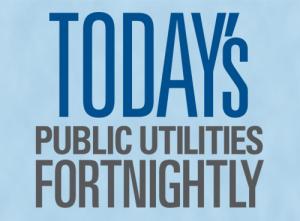Electric service — let’s face it — is weird. The consumer operates machines, appliances and devices unmindful that what animates them is part energy and part capacity, part wholesale and part retail, part short-term and part long-term.

This complexity wasn’t well understood in the early days of electric utility regulation. A year-plus before being elected President of the United States, Franklin Roosevelt for instance wrote in Public Utilities Fortnightly’s June 25, 1931 issue: “Private unregulated monopolies are unthinkable, and if regulation fails, the only alternative is government ownership.” It didn’t enter FDR’s great mind that competition – for a part of electricity – was an option.
Criticism of electric utility regulation is as old as electric utility regulation itself. And critics have asked countless times, in an economy with competition as its foundation, why can’t utilities be countered by competitors?
As electricity animates machines, appliances and devices, economist Alfred Kahn animated the arguments to deregulate electricity in the 1970s. Kahn broke up electricity into conceptual parts and posited that policymakers could choose to deregulate one or more, as if regulation and competition were merely tools in a toolbox.
Kahn closed his landmark two-volume The Economics of Regulation, “All competition is imperfect; the preferred remedy is to try to diminish the imperfections. Even when highly imperfect, it can often be a valuable supplement to regulation. But to the extent that it is intolerably imperfect, the only acceptable alternative is regulation. And for the inescapable imperfections of regulation, the only available remedy is to try to make it work better.”
In Kahn’s world, for policymakers, the question is, for which part of electricity can we try competition? In the 1990s, policymakers picked wholesale short-term energy with little opposition and this part has been deregulated ever since. The consensus ended there.
Increasingly, deregulation of wholesale long-term capacity has run into problems like diminishing diversity and adequacy of regional power fleets. And retail deregulation hasn’t gone too far beyond larger business customers in deregulated states. With the notable exception of Texas that mandated competition for all customers large and small.
When teaching economics at Georgetown U., I emphasized that competition for any commodity is efficient and good for consumers if four conditions are true. First, the commodity and consumers must be consistent (not much different across the market). Second, the competitors and consumers must be numerous. Third, the competitors and consumers must have perfect information on everyone’s prices. Fourth, entry of new competitors and exit of existing competitors must be free.
That fourth condition can be particularly troublesome for policymakers contemplating the deregulation of wholesale long-term capacity. If only because entry – opening new power plants in a regional market, and exit — closing existing power plants in a regional market, is hardly free considering the many regulatory hoops that plant owners need to jump through.
The second condition of competition is not a cakewalk either. Transmission constraints fragment regional markets so competitors in certain areas may not be numerous.
As if all this isn’t complex enough, the conceptual parts of electricity are connected. As has been demonstrated several times, most memorably in the California Electricity Crisis of 2000 to 2001, when policymakers deregulate one part without deregulating another, consumers can get caught in the crunch.

